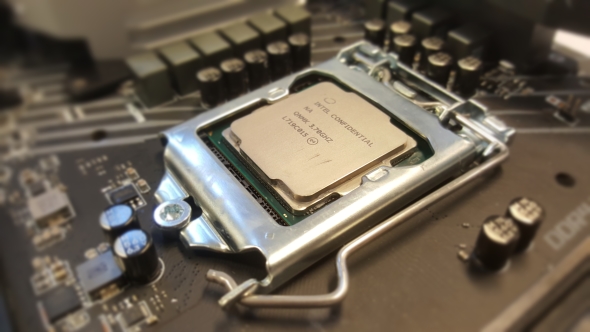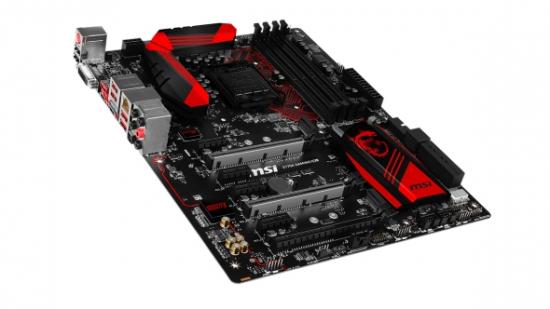Intel’s Coffee Lake finally brought six-cores to the mainstream processor market, but if you wanted to make use of them, you’d need to purchase the very latest Z370 chipset. Any old 100- or 200-series motherboard just won’t do – but with a little tinkering behind the scenes, some adventurous modders have rendered Intel’s backwards compatibility block obsolete.
Want to fiddle with zeroes and ones? Here’s the best gaming keyboards to help you code like a hero
Unfortunately, getting Coffee Lake up and running on older boards is not as easy as a simple motherboard BIOS transfusion. The modders discovered that you need to perform some Intel Management Engine and microcode trickery to get the chip up and running – but it works.
The Baidu user was tweaking an MSI Z170A Gaming Titanium Edition motherboard, intended for Skylake processors at its inception, paired with a Coffee Lake i3-8350K. The system isn’t flawless just yet, however, with PCIe not being recognised by the system whatsoever. Other than that pretty substantial loss, the system apparently ran exactly to spec.
Asus have already pointed towards Intel’s ME as the main blockade to backwards compatibility on 300-series motherboards. Andrew Wu, Asus ROG product manager, believes they could have supported the hex-core chips on at least last generation Z270 chipset had Intel not ‘locked the compatibility’ within their ME.
Intel’s ME already seems to be on the brink of extinction due to some major security flaws in Intel’s unpopular hidden OS. Intel have even been under duress from the Minix OS creator, Andrew Tenenbaum, who deems it unsafe for mass use (it’s only the tiny CPU manufacturer Intel, after all), but now even a few system OEMs have decided to ditch the system entirely – including system super-manufacturer, Dell. It may not be long before other manufacturers follow suit and also ditch the insecure Minix-based OS for the safety of their customers.

With this latest escapade proving that these chips are mostly functional once Intel’s ME limitations have been bypassed, it will be interesting to see how modding is affected now that the latest OEM’s builds have disabled Intel’s backend OS in its entirety – potentially offering a more permanent solution to the system limitations for users.
The next challenge for enterprising modders will be to get Intel’s flagship i7 8700K with all its six-cores and 12-threads running smoothly. Power delivery is supposedly the main limitation to running Intel’s flagship Coffee Lake K-series on older motherboards, so the real test will be to see if these chips are really as power hungry as they are said to be.
This mod is still in early stages, but hopefully this will eventually offer a solution to users who aren’t too hot on the idea of replacing their high-end motherboard in the near future. A pre-packaged BIOS for your Z170/Z270 board of choice would be ideal, but maybe a simplified version of the working solution, in bite-sized chunks, would be easy for users who don’t fiddle with microcode often. Not me, of course, I know everythingthere is to know about the inner workings of Intel’s Minix ME… I practicallywrote the book on the matter.
